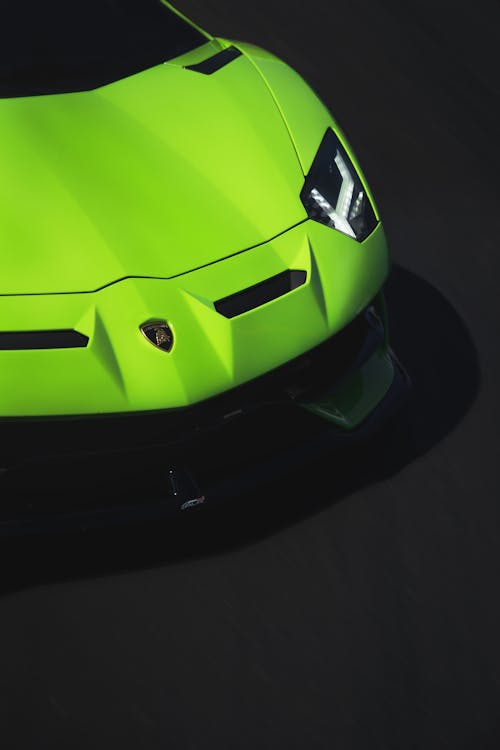The Ultimate Guide to Luxury Cars: Experience Elegance on Wheels
Step into the glamorous realm of luxury cars, where elegance meets unparalleled performance. This guide covers key brands, innovative technologies, and the cultural essence of luxury vehicles, catering to enthusiasts and prospective buyers who seek the extraordinary in automotive design.
Understanding Luxury Cars: What Defines a High-end Vehicle?
Luxury cars represent the pinnacle of automotive achievement, characterized by superior craftsmanship, cutting-edge technology, and exceptional performance. Notably, luxury is not merely an extravagant price tag; it encompasses a unique driving experience tailored for comfort and aesthetics. Brands like Rolls Royce and Bentley stand testament to what luxury vehicles should embody—opulence, attention to detail, and a commitment to excellence. In the luxury car domain, the materials used, the technology incorporated, and the driving experience offered are significantly different from average vehicles. For many buyers, owning a luxury car is about more than transportation; it's an experience that connects them to a larger community of enthusiasts. The meticulous process of designing and manufacturing luxury cars positions them as art pieces, elevating them beyond mere vehicles. Furthermore, the choice of features such as personalized interiors and bespoke color choices allows consumers to express their individuality through their luxury cars.
Top Luxury Car Brands: A Look into Iconic Manufacturers
Several brands have made a name for themselves in the luxury car market, each contributing its own flair to the automotive landscape. Icons such as Ferrari, Lamborghini, and Aston Martin not only deliver on performance but also create unparalleled experiences for consumers. Furthermore, each brand maintains a distinct identity, targeting different demographics and lifestyle choices. For example, while Ferrari focuses on speed and racetrack performance, Rolls Royce embodies serenity and sophistication. This diversity reflects the versatility within the luxury segment, appealing to a range of personal tastes and preferences. Understanding these nuances is essential for potential buyers navigating the luxury car market. When considering a luxury car, one must delve into what each brand represents, both culturally and in terms of engineering excellence. Luxury vehicles frequently become extensions of their owners' identities, enhancing the emotional connection between the buyer and the manufacturer. By fostering this relationship, luxury car brands cultivate lasting loyalty among their clientele.
Innovations Revolutionizing the Luxury Car Experience
In the realm of luxury cars, innovations continue to set new standards for performance and comfort. Features such as adaptive suspension systems, AI-driven navigation, and high-fidelity audio systems are now considered norms in today's high-end market. As technology advances, luxury car brands are actively incorporating smart connectivity, allowing drivers and passengers to seamlessly integrate their devices into the driving experience. Additionally, the rise of electric vehicles is revolutionizing what luxury cars can offer. Tesla, for instance, has not only changed the perception of electric cars but has also highlighted performance, appealing to those seeking exhilarating driving experiences without compromising on efficiency. Moreover, manufacturers are focusing on autonomous driving as a game-changer in the luxury market, promising to redefine how consumers interact with their vehicles. In this exciting new landscape, luxury car consumers are rewarded with choices that enhance both lifestyle and performance.
The Cultural Significance of Luxury Cars in Society
Luxury cars carry profound cultural meanings, acting as status symbols that reflect social aspirations and achievements. From red carpets to film festivals, luxury vehicles frequently make appearances in high-profile events, solidifying their status in popular culture. This relationship between luxury cars and culture cannot be overstated; it shapes consumer perceptions and purchasing decisions. The aesthetics and engineering marvels behind luxury cars often inspire art and fashion, creating a symbiotic relationship between these realms. Moreover, the marketing strategies of luxury brands capitalize on this symbolism by curating narratives that evoke emotions and aspirations. Understanding how luxury cars fit within cultural contexts enhances one's appreciation for their impact beyond just their performance. By embracing this cultural significance, manufacturers can connect with consumers on a deeper level, fostering brand loyalty that transcends transactional relationships. Ultimately, luxury cars represent a lifestyle—valuable markers of one's achievements and taste.
Shopping for Luxury Cars: Insights for Aspiring Owners
Navigating the luxury car market requires knowledge and discernment. Prospective buyers should consider several essential factors, such as performance, luxury features, and resale value. Unlike traditional vehicles, the purchase of luxury cars is often influenced by emotional connections and brand narratives. Additionally, potential owners should research dealership reputations and after-sales services, ensuring a fulfilling ownership experience. Test driving is imperative; it allows buyers to experience firsthand the nuances of driving a luxury car. Furthermore, understanding financing options specific to luxury purchases can greatly enhance the buying journey. With the right preparation, consumers can confidently explore the luxury car landscape, identifying the model that resonates with their personal taste and lifestyle. As luxury car ownership becomes more accessible, insights from the changing market environment empower consumers to make informed decisions.
The Future of Luxury Cars: Trends to Watch
Looking forward, the future of luxury cars is promising, marked by key trends reshaping the industry. The focus on electrification, autonomous driving capabilities, and sustainable practices are crucial themes. As consumers become more environmentally aware, manufacturers must adapt to ensure their luxury offerings align with these values. Moreover, the integration of advanced connectivity features will continue to enhance the luxury car experience. Future vehicles will not only provide traditional comforts but also incorporate cutting-edge technology that transforms how we interact with our vehicles. Personalization will remain a significant trend, allowing consumers to curate their luxury experiences. In this dynamic environment, brands must uniquely position themselves and leverage innovations to capture consumer interest. The evolution of luxury cars reflects broader societal changes, ensuring that they remain not just vehicles, but aspirational lifestyle choices.
